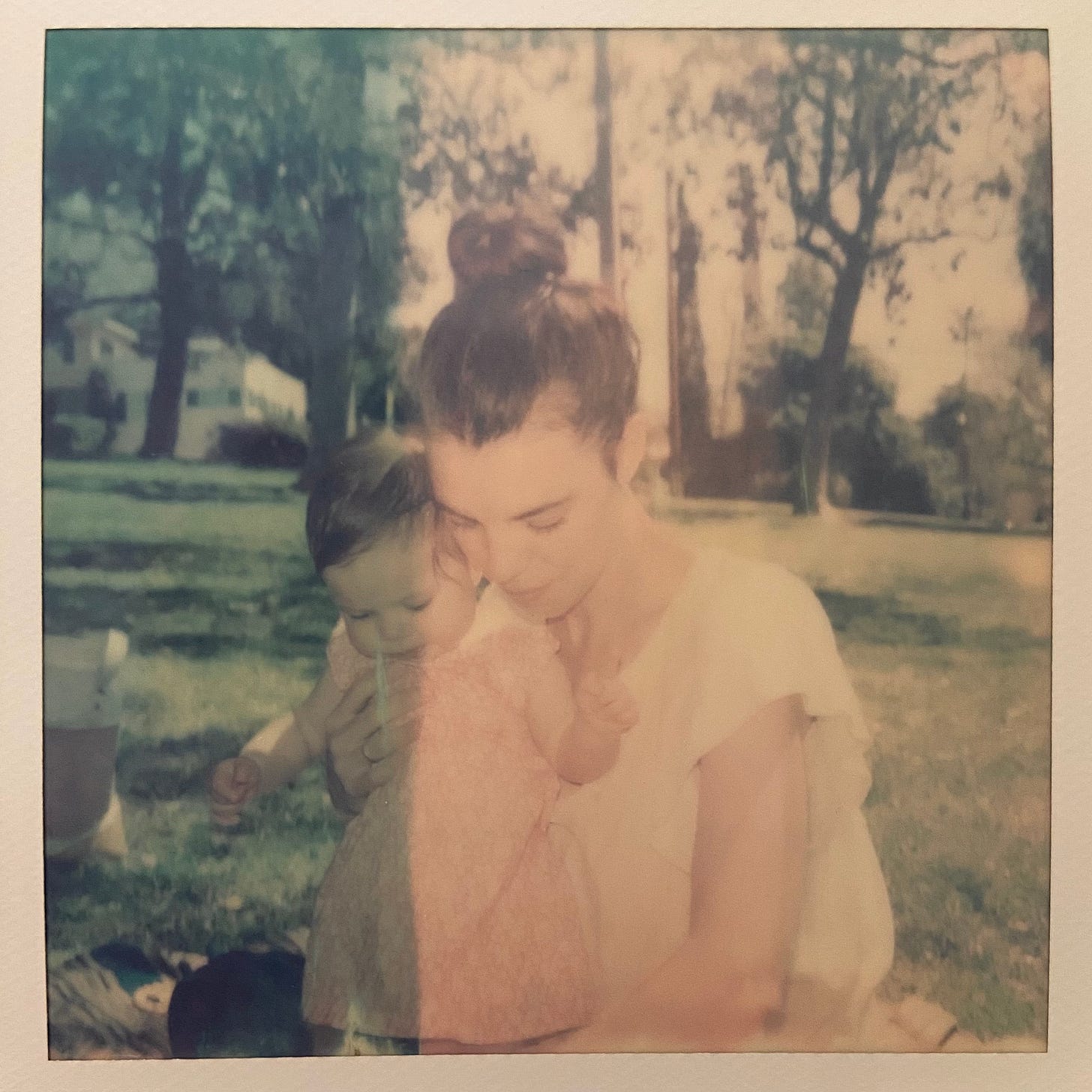Mid-teens to late twenties, I struggled on and off with body image and eating issues. I was lucky in that it was a disorder that came and went—it didn’t plague my entire existence. Until it did.
It’s an easy walk down the road to the devil who offers a sense of control through starvation when everything else feels out of control. The crescendo came after a bad breakup, when I went from my lowest to highest weight and back again within a single year. By the end of that year, I’d had enough. Although it would be more than a decade before I had my daughter, I knew then that this was something I needed to heal before having kids. No one else was going to inherit this, not if I could help it.
I decided that I was going to untangle and rewire my frayed relationship with food and my body once and for all.
And I did heal. I did it with love, patience, and education. I read a ton of books and asked a lot of questions. The effort was monumental. The change didn’t happen overnight—but it did happen. I gave myself over to the pursuit, and honestly, it’s probably one of the greatest accomplishments of my life.
That said, it’s something I hardly think about anymore. It feels far away now—the shadow of an old self. But recently, as I’ve been embarking on a money healing journey, that time in my life has been resurfacing a lot.
At first, I assumed it was because I recognized a similar process: deciding to heal and change, then devoting myself to a mental, spiritual, and psychological learning (and unlearning). And while yes, that’s part of what’s happening—it’s more than that.
When I was healing my body, one of the most powerful shifts came after reading Geneen Roth’s Women, Food and God. Roth writes, “The way you eat is inseparable from your core beliefs about being alive,” and: “Are you willing to go all the way? To understand that food is only a stand-in for love and possibility and spirit? Because if you aren't, you will get caught up in gaining and losing weight for the rest of your life. But if you are willing, then the portal to what you say you want is truly on your plate.”
These ideas revolutionized my mind and fast-tracked my recovery. I began to understand that whether we are starving or bingeing, what we are really asking for is belonging, safety, love, and acceptance.
I believe there’s a direct correlation to money: our relationship to money is a reflection of our existence. How we make, spend, and save money mirrors how we see ourselves and how we operate in the world. How we think about money is how we think about ourselves—and our worth.
When we turn to spending, or obsessively budgeting, or saving every penny, or worrying about money, or ignoring money, or being angry about money—or any of the many ways we can relate to money— it is in the same way we might turn to food when things are out of alignment in our life: to numb discomfort, escape anxiety, or feel a fleeting sense of control or security. And when we long for money, we’re really longing for something more—for love, safety, acceptance, and even God.
Roth emphasizes that healing doesn’t come from more discipline or the perfect plan, but from radical presence and self-inquiry. In the same way, transforming your relationship with money doesn’t come only from the right budget or job or investment strategy—it comes from being willing to feel what you’ve been avoiding.
Paying attention—without judgment—is the first act of healing. Instead of asking, “How much do I have?”, the real question might be: “What am I afraid to feel right now that I’m hoping money will solve?”
Our relationship to money is layered, complicated, and deeply personal—just as it is to our bodies and the food it receives (or doesn't receive). Roth writes, “Your tears, your hunger, your longing—they are not wrong. They are holy. They are the way home.”
So here I am, on a new mission. I’m asking the big questions. I’m shucking open a corner of my mind that’s long been sealed shut. I’m doing it for my daughter. For myself. Our future. To step outside of fear. Because often, we use fear—fear of money, fear of lack—to distract ourselves from the bigger questions.
What was revealed in healing my body wasn’t a sense of perfection. I certainly don’t wake up every morning and think, “Hot damn, I look good!” But I also don’t awake in a state of loathing. I don’t make perfect food choices every day, but the difference is: that’s okay now.
And as someone who loves food and loves to cook, the freedom to eat with pure joy is everything. The freedom to eat without judgment or criticism or punishment or any kind of charged emotion—outside of communion and pleasure—is a privilege, and perhaps even a form of enlightenment.
I’m thinking it’s the same with money.
That money is just another channel.
Another mirror.
Another teacher.
Another way in, where we can meet ourselves.






Very difficult deep subjects to deal with and then to write about. Deceptively simple because we are dealing with food and money everyday. Sometimes not dealing with it, shoving it in a corner. I like this because it’s about growth and about facing challenges head on, but naturally.